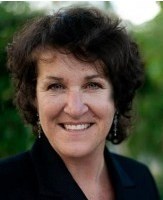Interesting discussion from Courtney Craig at Spoonie Radio 

Here's how Suzanne goes about getting new investigators into the field - something she's been quite successful at. She's such an interesting figure coming from the CDC and reworking the CAA's (Solve ME/CFS's) approach to research. It's paid off - many of their researchers are getting NIH grants. Good bang for the buck from Suzanne's program.
Here's what Solve ME/CFS is doing this year:
Here's how Suzanne goes about getting new investigators into the field - something she's been quite successful at. She's such an interesting figure coming from the CDC and reworking the CAA's (Solve ME/CFS's) approach to research. It's paid off - many of their researchers are getting NIH grants. Good bang for the buck from Suzanne's program.
Suzanne is definitely pushing the Biobank - which is admittedly a great resource - and it sounds like we have some good stuff coming up...I can think of the exercise-gut study, logosomix, Biovista, the exercise-cognition study and I'm sure I'm missing someAnd so what I have done since starting the organization is really tap into my network of scientific colleagues and I am constantly scanning the literature for research approaches and innovations that I think will be impactful and important and relevant in ME/CFS research. And then reaching out to those particular individuals that are on the cutting edge of many of these areas of research and seeing if they are game for kind of dipping their toe into the ME/CFS research domain. And because we have this resource available, it makes it a lot easier. It effectively lowers the barrier for these investigators to get in; both financially and from a timeframe perspective. They don't have to go out and identify patients and controls and collect all the samples and all of that kind of stuff.
And I think one of the other important things is that they don’t have to know a lot about ME/CFS in order to do that. A lot of people are reluctant to get into an area where they don’t know a great deal. They haven’t built up their portfolio to really understand what ME/CFS is. I mean that sounds kind of weird because scientists are a curious lot in general and I think that they are great at exploring new domains. But to do something... to again dip your toe into an area that is so complex and while there is a lot of opportunity, there’s also a lot of uncertainty from – is this worth my time? Am I going to be able to get a paper published? Am I going to be able to find something if I don’t understand really what it is that I am doing? It’s a risk right? – For the investigator.
So that’s why it’s also important when you have a resource like a Biobank, and in our case the Solve ME/CFS Biobank, to also have that backed up with some credibility, some scientific and research prowess that I bring to the Biobank and then it makes it a lot less uncertain, a lot less scary for investigators to venture in.
We have a number of publications that are currently in press that are using some cutting edge technologies and looking at things that haven’t been looked at before, so really biomarker discovery.
Here's what Solve ME/CFS is doing this year:
Well, we are gearing up. We just got IRB approval – that’s Institutional Review Board approval for getting the study that was funded by this half a million Falk award up and going. So we are getting the equipment in place, we are getting the clinic geared up, we are doing some preliminary studies with Dr. McGowan up in University of Toronto who will be doing the epigenetic component, getting those pilot studies done. So at least for 2015, this is really an exciting year hopefully furthering Dr. McGowan’s preliminary epigenetic findings as well as restocking the inventory of our Biobank so that investigators like Derya Unutmaz and Lenny Jason can further their preliminary findings on these next set of sample












